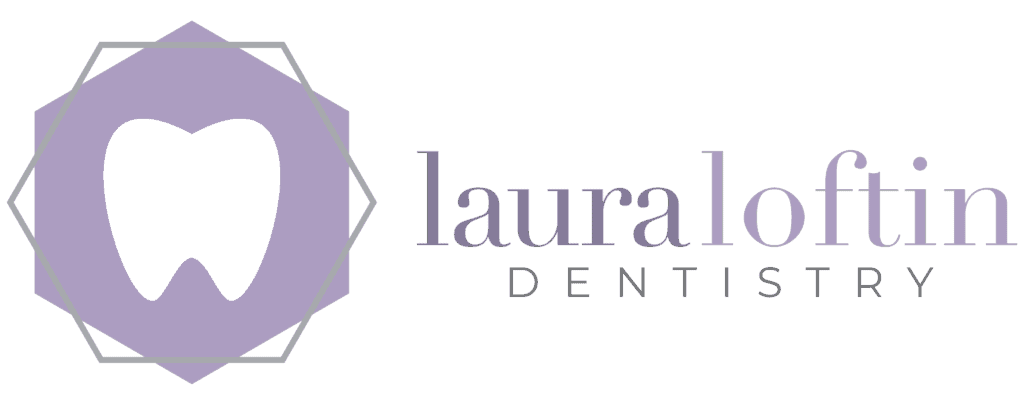Many people who suffer symptoms of TMJ (temporomandibular joint) disorders have never heard they could get Botox injections for TMJ. Fort Worth dentist Dr. Laura Loftin finds this fact unfortunate, especially because many traditional TMJ treatments don’t fully alleviate TMJ symptoms, and jaw surgery can be drastic, painful, and often unnecessary.
As one of the less than 10% of dentists licensed to administer injections of Botox for TMJ in the United States, Dr. Loftin has seen the relief Botox for jaw pain can bring to her patients. She is a proponent of TMJ Botox therapy for qualified patients and has performed thousands of successful Botox injections for TMJ during her career.
What is TMJ disorder, what causes TMJ, and what are the symptoms of TMJ?
According to the Cleveland Clinic, TMJ disorders affect the jaw joints as well as the surrounding muscles and ligaments. The temporomandibular joints (TMJs) connect the lower jaw to the skull and are located in front of the ears on each side of the face. Healthy TMJs are essential for chewing and speaking normally.
TMJ disorder can occur as a result of trauma, excessive clenching and grinding of the teeth, improper bite, dislocated disc between the ball and socket joint of the jaw, arthritis in the TMJ, wear and tear, and stress.
For patients with a sudden onset of jaw pain, Dr. Loftin often finds a clear stress trigger is to blame. In fact, 99% of the time her patients will confirm they’ve had a stressful experience, stress at work, stress planning a big event like a wedding, or other stressful event occur prior to the sudden onset of jaw pain.
Regardless of the cause, when the jaw joints aren’t functioning properly, pain and discomfort may occur. Common noticeable symptoms of TMJ may include:
- Jaw tenderness and pain (often more noticeable in the morning).
- Headaches (sometimes constant).
- Earaches.
- Toothaches.
- Facial pain, tension, and/or swelling.
- Painful neck and/or shoulders.
- Difficulty chewing or fully opening the mouth.
- Ringing in the ears (tinnitus).
- Clicking, popping, or grating sounds when moving the jaw.
- Locking of the jaw joint.
While some patients may receive an initial TMJ disorder diagnosis from their physician, physicians frequently refer patients with TMJ to a dentist for treatment. During the dental exam for TMJ disorder, the dentist will examine how the jaw functions by manipulating the jaw, checking for areas of tenderness, and feeling the bones and muscles around the jaw for abnormalities.
In most cases, the dentist will also take X-rays of the jaw to get a “visual” of the area of concern and determine the severity of the disorder. From there, she can prescribe treatment (more on TMJ treatments below).
You can still have a TMJ disorder even if you don’t have symptoms
Some people with TMJ disorders don’t experience any symptoms at all. It’s also very uncommon for patients without symptoms to diagnose themselves, and that’s where knowledgeable dentists like Dr. Laura Loftin come in. During a routine dental exam, if Dr. Loftin discovers “wear facets,” which are tiny, little craters in the pointy parts or cusps of the patient’s teeth, that is usually a good sign the patient has a TMJ disorder.
Wear facets can occur when the patient has been overworking their masseter muscle, which is the main muscle used for mastication or chewing. That repetitive motion of the jaw and teeth grinding against each other gnaws away at tooth enamel and could result in permanent damage to the tooth structure.
The patient may eventually notice (or feel) wear and tear on the teeth but at that point, the damage has been done. Once enamel wears away you can’t replace it, and depending on the severity of the damage, a procedure to repair or replace the tooth or teeth could be warranted (veneers, dental implants, bridges, etc.), along with treatment to resolve the TMJ disorder.
Diagnosis of an asymptomatic TMJ disorder is another good reason to see your dentist for a routine dental exam every six months. If you put off dental exams for years, TMJ disorders along with cavities, gum disease, and other oral health issues could go undiagnosed, resulting in more serious problems like tooth loss—not to mention pain!
How do you treat TMJ disorders?
If you’ve been diagnosed with a TMJ disorder, your healthcare provider or dentist can recommend and prescribe a variety of treatments, based on the severity of your condition.
Some patients benefit from self-care, which may include an ice and heat regimen, switching to softer foods for a period of time, avoiding over-taxing of the jaw, over-the-counter pain medication, relaxation techniques (yoga, meditation, mindfulness therapy, etc.) to alleviate stress, and other treatments. Be sure to ask your health care provider or dentist for guidance on self-care.
The dentist may also prescribe a mouthguard for the patient, who may be instructed to wear it strictly at night (also called night guards) or full time (also called splints). Depending on the type of dental appliance prescribed, the mouthguard may protect teeth from grinding, put the jaw and bite in a better-aligned position, and provide stability in the mouth.
Some dental procedures help resolve TMJ disorders. For example, patients with a misaligned bite may need braces or benefit from clear aligners like Reveal® or Invisalign Fort Worth. TMJ disorders can also occur when a patient has damaged or missing teeth, which may be resolved with dental implants, crowns, bridges, and other Fort Worth cosmetic dentistry treatments.
Other options include prescription medication, jaw surgery, and Botox TMJ injections. If you’re experiencing enduring jaw pain and OTC pain medications and a mouth guard aren’t helping, your dentist could prescribe prescription pain medication, though this is something Dr. Loftin only recommends over the short term. Your physician may also prescribe medication like muscle relaxers to discourage clenching or antidepressants to help manage stress and anxiety.
Jaw surgery should be seen as a last resort, and Dr. Loftin isn’t a proponent of jaw surgery for the vast majority of TMJ cases. She’s found that Botox injections for TMJ are much less invasive, and most important, resolve severe TMJ issues for patients who were previously told jaw surgery was their best bet.
How does Botox for jaw pain work?
Botox in the jaw for TMJ works very much like aesthetic Botox for wrinkles works. Botox (botulinum toxin A) is a muscle relaxer, and if you inject enough Botox into the muscle, it freezes the muscle or stops the muscle from contracting to a certain degree.
With aesthetic Botox, wrinkles go away when the muscles stop contracting. With Botox and TMJ, the dentist translates the aesthetic approach into the muscles of the jaw. These include the masseter muscles that protrude along the bite line, and in more extreme cases, the temporalis or temporal muscles that cover the temporal bones, which form the sides and base of the skull.
You should only trust a healthcare practitioner to perform the procedure, who is licensed to treat TMJ with Botox injections. Proper dosage and precise placement of the Botox in the muscle is critical. If the treatment isn’t dosed or placed properly, the muscles won’t be able to contract at all, and the patient could lose their ability to chew or speak properly.
Dr. Loftin follows a specific dosage protocol, which doesn’t take away the ability to chew but will prevent the patient from doing the deep clenching that can cause TMJ pain and wearing of the tooth structure.
As with aesthetic Botox, some patients need ongoing injections to keep TMJ symptoms at bay. Generally, Dr. Loftin finds that patients will need additional treatments anywhere between 3 to 6 months. The longer patients consistently get Botox injections for TMJ, the longer they will be able to go between treatments (similar to Botox treatments for wrinkles).
It’s also important to note that many people recover from TMJ disorders over time. Minor cases can clear up in a few months with minimal treatment. Stress-related cases can clear up when the stress trigger subsides. Your healthcare provider can give you a better idea of what to expect in your specific situation.
How much does Botox for TMJ cost?
The cost for TMJ treatment Botox is similar to the cost of aesthetic Botox, though Dr. Loftin uses a stronger form of Botox, which may cost slightly more. On average, you can expect to pay somewhere between $10-15 per unit for Botox.
In general, patients need anywhere between 20-100 units of Botox per treatment, depending on the severity of their TMJ condition. For example, most of Dr. Loftin’s adult patients who suffer from significant, reoccurring jaw pain require between 30-50 units of Botox to get relief. While most patients benefit from injections solely in the masseter muscle, patients with more severe TMJ disorders may also need additional injections in the temporalis muscle (and more units of Botox).
If you don’t have dental insurance coverage you may also pay a fee for X-rays and an appointment with the dentist or healthcare practitioner for Botox injections for TMJ. Doctor appointments can run you $150-200 or more, and the practitioner may end up referring you out to a specialist anyway. Dr. Loftin does not charge an appointment fee, and since she’s licensed to administer Botox for TMJ, you pay a fee based on the number of units of Botox you need, as well as a fee for X-rays (about $100), which may be covered by insurance.
Again, it’s critical to see a practitioner or dentist who has been licensed and trained to inject Botox for TMJ, like Dr. Loftin. Due to their extensive training, knowledge, and experience, you will pay more for Botox treatments from a doctor than you would pay for Botox wrinkle treatments injected by an aesthetician.
Licensed dentists like Dr. Loftin understand the anatomy of the face, jaw, temporomandibular joint, thick masseter muscle and temporalis muscle, as well as the best area in the muscle to inject the Botox. You can’t (and shouldn’t!) go to an aesthetician at a med spa to get Botox injections for TMJ.
Contact us to learn more about Botox for TMJ
If you have questions about Botox and TMJ, Dr. Laura Loftin has the answers. Patients who live near Dr. Loftin’s Fort Worth dental office can schedule an appointment by calling (817) 429-4444.


